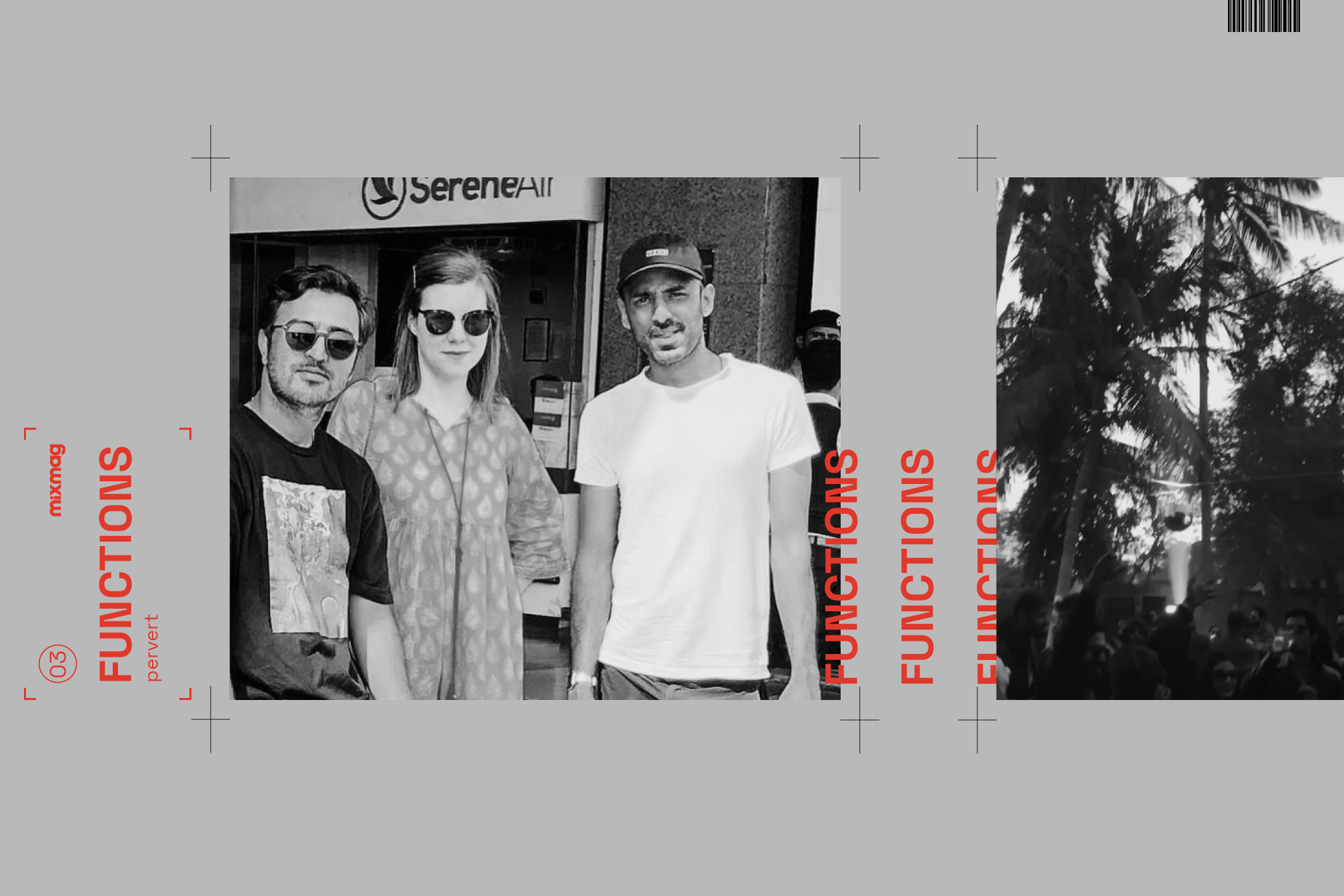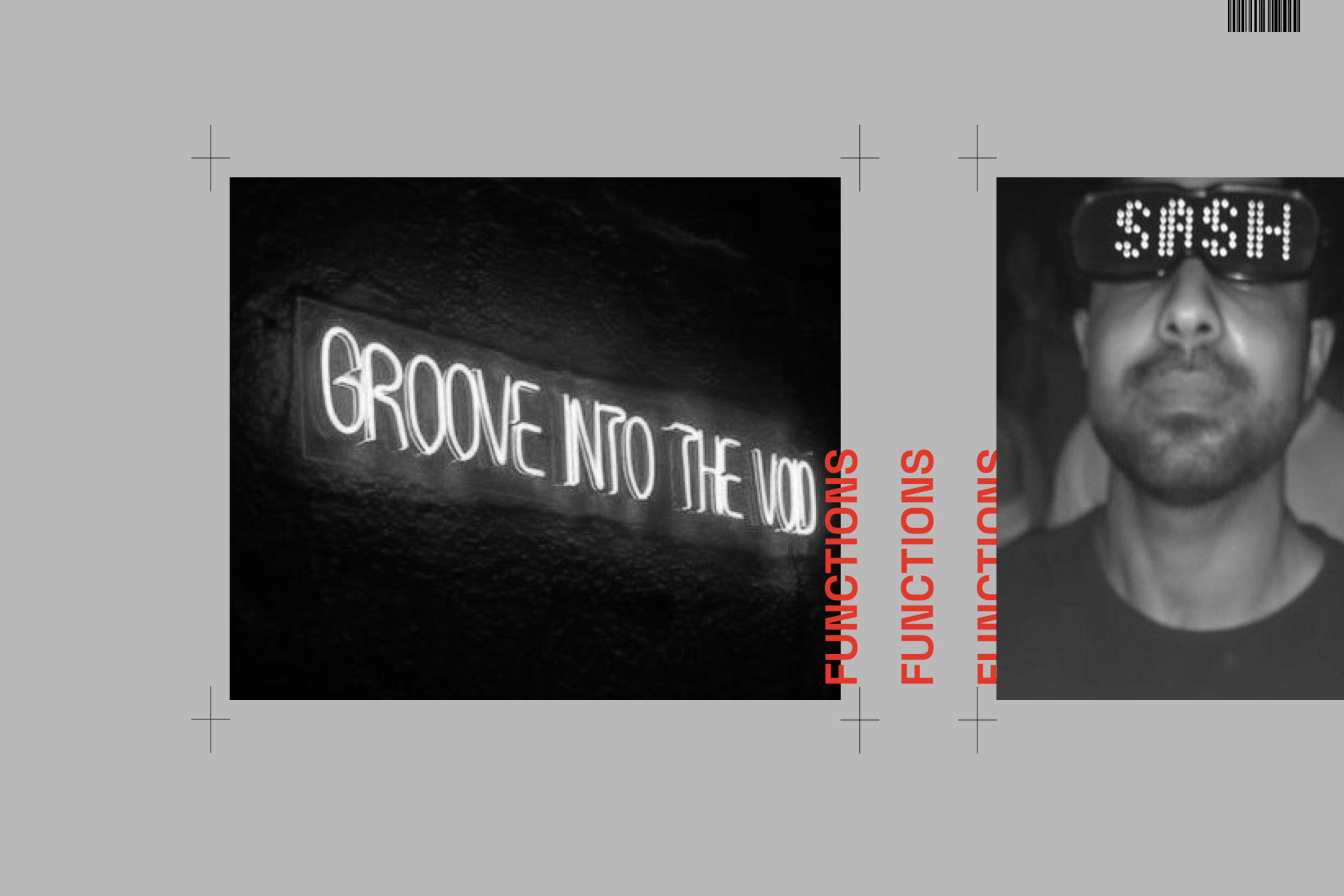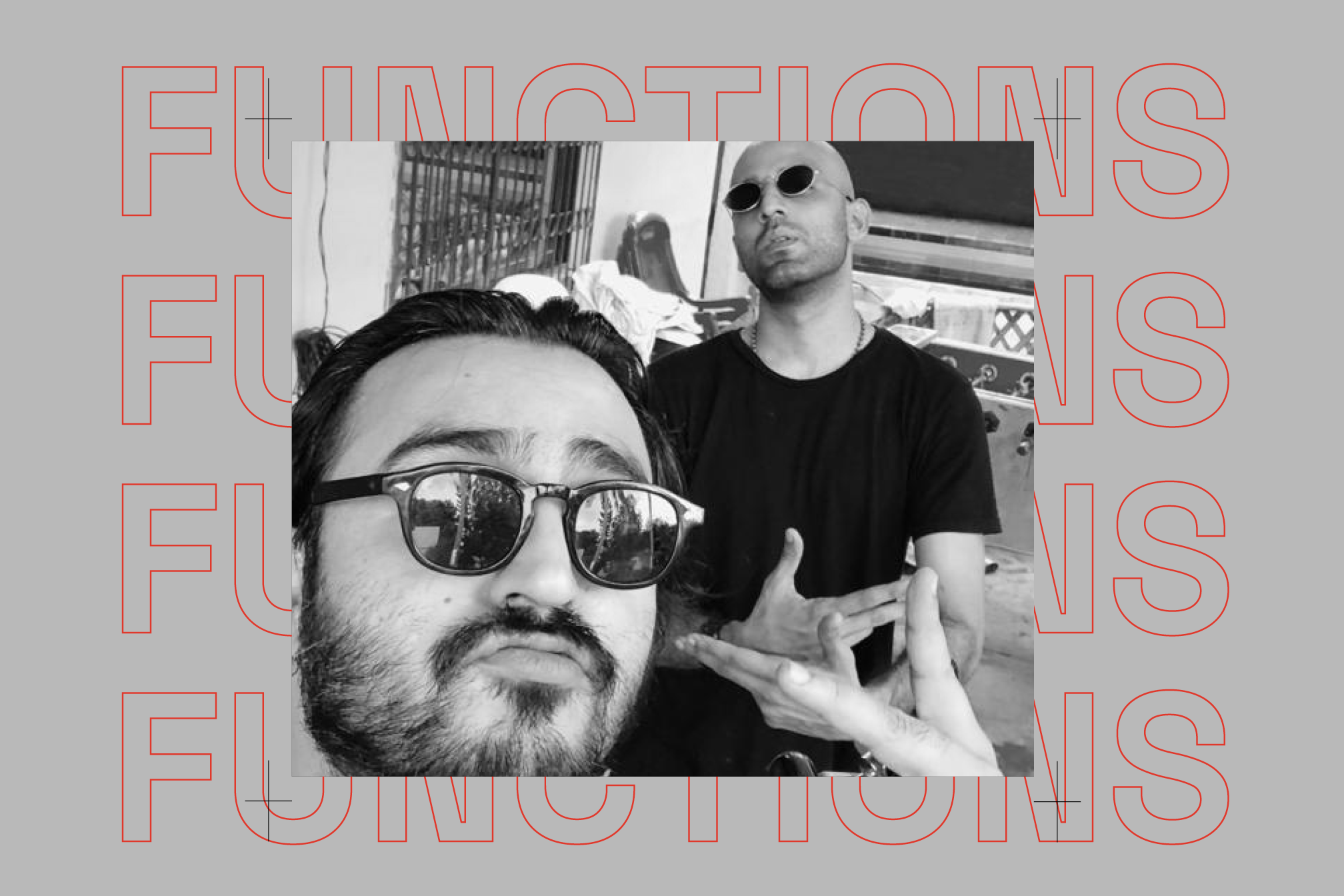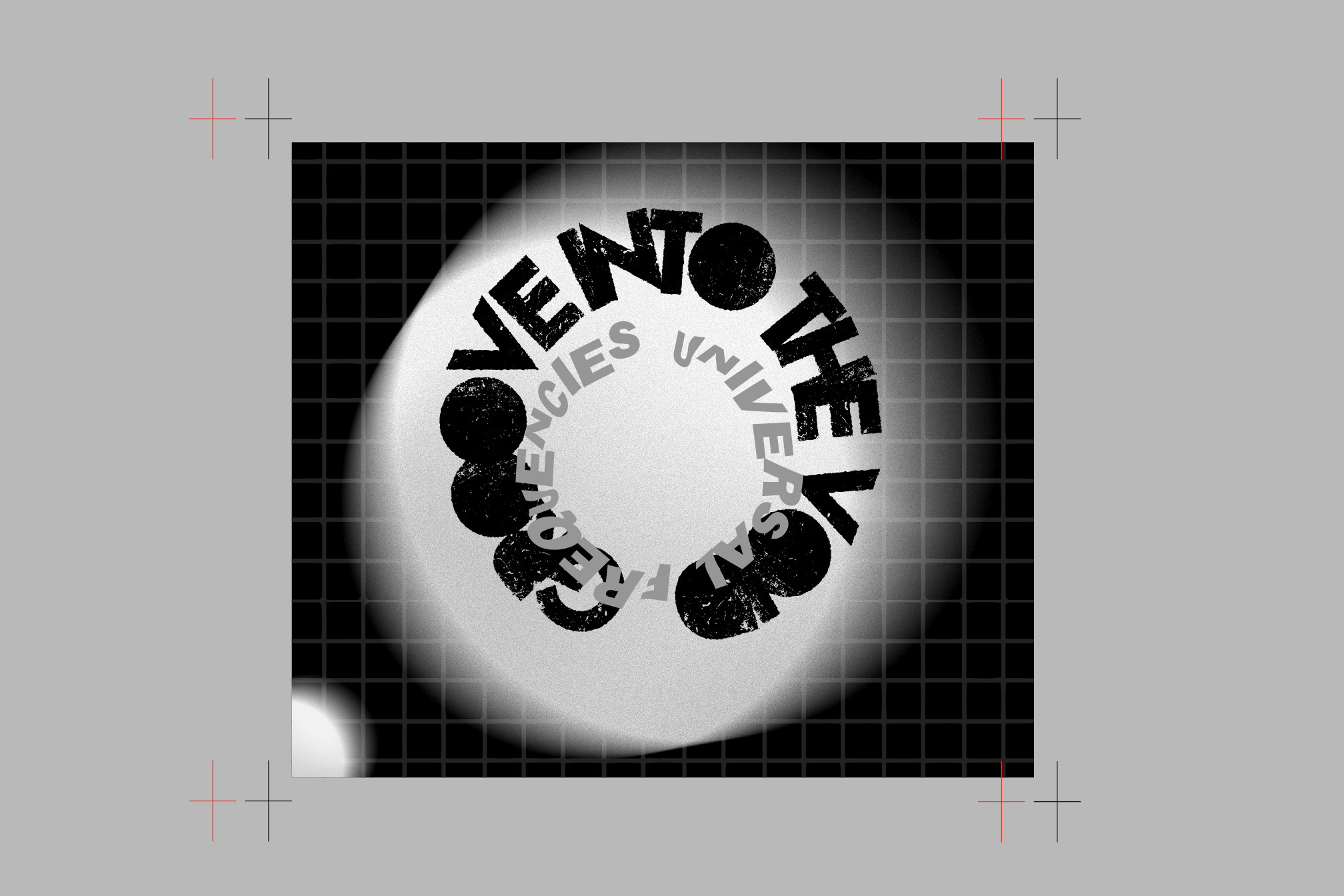 Features
Features
Harmonic co-existence: Groove Into the Void is a shining light in Pakistan’s club sphere
Groove Into The Void is a Karachi based party aiming to provide Sanctuary to Pakistan's underground music community
Functions is our new interview series profiling parties from across the world. This week: Karachi's Groove Into The Void.
Eager to change societal perceptions of the underground community within their home country of Pakistan, Groove Into The Void provides a safe space for electronic music fans in the city of Karachi. The party lets revellers truly let loose to the music that they would otherwise have to only privately enjoy — free from any form of discrimination, sexism and classism.
Founded in April 2021, the party has made a big impact in its short 12-month tenure. Hosting an event every couple of months, in a vacated farmhouse, roughly an hour and a half outside the centre of the city. Embracing nature and using audio-visual effects in some of their shows, organisers select the best DJs in the city to play everything from techno, tech-house, afro house, and beyond. Founded on community values, the party stands up for the people of Pakistan who “just want to have a good time and don’t want to cause any trouble,” and they pride themselves in offering a sanctuary away from fear and judgement.
Read this next: This is Asia: The rising labels pushing things forward in 2021
“Here in Pakistan, clubbing and raving get a lot of bad stigma. This is because it is associated with impurity, but we want to show that it can be a lot more than that,” co-founder Zee tells us. Zee and his business partner and friend Jalal have been electronic music fans for years and were creating small parties for their friends. They then spread the word, and now invite hundreds of electronic music fans from around the city and country to their events.
“We are a community-based collective, formed around an idea to locate music alongside other artefacts within the realm of an all-embracing attitude toward artistic expressions, that aims to curate audio-visual experiences that are close to the nature and create a subculture — a harmonic co-existence for the art and music enthusiasts in the city of Karachi — where it's rare to find spaces like this, where one can simply enjoy the music and surroundings without fear of judgement, and takes a lot of effort to make people understand who we are.”
We sat down with co-founder Zee, who told us all about the party, the techno, the problems persisting in Pakistan, and how they cultivated a community.

How did Groove Into The Void come about?
Jalal and I started it together, we used to organise parties but just for family and friends in our place. It was definitely more of an intimate setting thing amongst friends. It was very private, we didn’t advertise it anywhere or even really post about it that much. We used to go every weekend to a set location and just play music and have fun. Then we realised that we have such a huge city, with a population of over 20 million people. There are no clubs, there are no bars, and there’s very limited space to enjoy music and unwind and have fun. So we thought, why not provide a space for everyone who loves music and dancing like us? We wanted to make a safe space for people to express themselves. We had space because Jalal has a family-owned barn house just outside the city, it’s a privately owned piece of land. So we had the means to start something, it was just a matter of finding the right people to party with.
What were the first steps taken to get the ball rolling?
Well, we listened to a lot of techno music, we started by organising a techno music gig. We got in touch with some underground techno DJs in the city. We told them what was happening, got them together, we advertised it as a music event for music lovers. At first, we were slightly sceptical because we didn’t think many people would drive all the way to the farmhouse, it’s a one and a half-hour drive from Karachi. To our surprise, a lot of people actually showed up. Around 250-300 people turned up, we only expected around 50 people. By midnight the parking space was full and we had to turn away people from the gate. We realised people liked the idea and provided a space for music events like this.
How did the name come about?
This is a personal one for me! I’m obsessed with Gaspar Noé movies! And he has that one called Enter The Void, which was entirely shot in Tokyo, and is possibly one of the most memorable cinema experiences in terms of effects, it has a very strong visual experience and crazy artistic interpretations well just like any other Gasper Noé movie. That movie is a trip and a half! I’ve tripped just watching that movie in my room, I’ve always wanted to build something around that idea and visuals. I coined the term because the place we do these parties is actually really far and you have to find and manoeuvre and explore your way through the void essentially to reach the groove. It’s not easy to find! So together with that, we created ‘Groove Into The Void’!
Read this next: Into the light: Iyre is uplifting South Asia’s drum ‘n’ bass scene
When you started GITV, did you have any defining aims or goals?
Our main goal was to provide a safe space for young people who like to go to raves and party and have actual fun. You know, Karachi used to be a city with a vibrant nightlife and a thriving tourist industry, back in the 60s and 70s there used to be nightclubs, cultural live music, and bars and the scene was bustling and the society was freer than it is now, in fact, the country was also part of the “hippie trail” the overland journey taken by hippies from the mid-50s to the late 70s and Pakistan was essentially a famous stop on the journey. Even at the time of independence, Pakistan had more liberal policies but then gradually drastic changes took place and the entertainment industry was badly hit by attaching a stigma to it and which entirely changed the social climate. It was such a beautiful time and we are sort of trying to bring back the memories of Karachi.
Do you feel as though GITV has a role in changing this perception?
We try and we strive to, yes. We’re trying to show that going to a music event is not a bad thing, it’s just a fun thing - as long as you respect people's boundaries. You can party in a safe and protected environment without hurting anyone. We want to show that you can party in Pakistan and that we have the means to be a very good scene. The perception of parties happening in farmhouses is really really bad, people associated it with sex workers, booze and landlords. A lot of people do and did that and it was only really Bollywood music playing - but we’re trying to change the perception about that. That it’s not only about drugs and being almost sleazy, but it can also be about fun and be about good varieties of music - all we ask from people is to bring a good attitude and be mindful and respectful to people around you and have a good time.

How do you create this safe space for Pakistan’s partygoers?
Well firstly, this is our own private family-owned space so we have control over it. We have private security and hire special security and bouncers. We keep a close tab on the people we invite. We don’t market our invite as a way for just anyone to come in, but we try and keep it exclusive to people who we know firstly love music and secondly will be respectful of everyone else there. We don’t want lots of just stags coming into our parties, as we want it to be as balanced as possible. When we announce our parties, we announce it as couples only or mixed groups only. Just to maintain a balance. These steps help us to keep it a safe space, we keep a close lookout on audience members and watch everyone to make sure it is a good environment for our partygoers.
We reiterate to our guests that we do not tolerate sexism, racism, hatred or harassment of any form, if you should experience any such issue or behaviour you know who we are and you know how to reach out to us, please come and talk, we are present at the venue at all times.
Because of how stigmatised raving is, have any attendees ever been nervous to come to an event?
Definitely, a lot of people have messaged our Instagram page before and asking why it’s so far from the city and asking if as a single girl whether it is safe to drive and asking how we can ensure it is protected. Firstly, raves are often hosted in the outskirts and we can’t organize a dance gathering that brings 300 people to a basement or a neighbour’s pool in the city and there are many limitations, farmlands are perfect for throwing raves as there is plenty of area to set-up stages and artistic elements. We say that so far we have had around five parties and, Alhumdullilah, nothing bad has happened. People felt safe, they had fun, they were partying until 8:AM in our space and nothing bad happened. We tell our partygoers to look at our ethos and our history, and we are here to make sure everyone feels safe and protected.
Read this next: "A tool for protest": DJs from the Global South are fighting oppression with music
Have you ever encountered any problems because of the negative perception around raving?
We had a very strange situation. We had around 12 people, all men, try and come into one of our events. They were not invited and they did not have a ticket. They were super drunk and it was scary and at that time I was handling the gates. They wanted to barge in and they were very rowdy and very macho. After I explained to them that they were not allowed in, they carried on insisting to be let in. They said that they would create a drama and started threatening with their connections, so I had no choice eventually and had to allow them in. I said they have ten minutes, and then they go in and the moment they did they were making people uncomfortable, Then my business partner approached them and firmly told them they have to leave. It’s so tricky, we cannot approach the police for things like this because if we tell them they’d say “oh you’re organising these parties and raves, that’s illegal!” It’s not easy to do these parties without having a strong socio-political background, we needed to have this privilege and status to be able to hold something like this.

What is the GITV community like, what’s the crowd like?
From just a group of 10 people to the whole community of people in just a matter of few months is definitely a great sign and we can feel it is getting bigger and better each gig, we are being approached by people with artistic inclinations as well as big labels and DJs for future collaborations and that makes us very happy and optimistic about carrying it on, we want to work with the artist community both locally and internationally, we are also collaborating with some artists in Kenya & Uganda through the label called Underground Kampala and the future looks good. As for the crowd – we have managed to build a solid fan following through our Instagram page where we regularly post updates related to our events.
What types of music do you play as well as techno?
Although we started as a techno music fest, we then moved on to other genres and have started playing more events which have mixed music as we realized we have a diverse crowd in terms of music listeners and want to invite all of them not just any particular set of people. So we announced one gig as a progressive house, and we hired some DJs who played that music. And then we played a mixed music event, there was progressive house, industrial techno, tech-house and there was a mixture of electronic genres being played. This one was the most successful one in terms of crowd numbers. We made a big event which was a success for us.
How do you select your DJs, especially your resident ones?
Well, there aren’t too many DJs in this city, everyone knows everyone in the electronic music community. It’s easy to approach people who we like as musicians or as DJs, we personally know them or know them through people. Or other times, DJs approach us through our socials and if we think they’d be a good fit, we ask for a sample. Then me and Jalal decide together if we should have them on.
Our residents are Kukido, TMPST, Tollcrane, Saad Darabu and AlteredState. I used to listen to most of them actually before we started this. I was a corporate slave! I used to work and in the office, I would listen to these DJs. So when I quit my job to become a full-time organiser I approached them and shared my idea with them it was easy to convince them to do this together collaboratively. So we agreed on fees, and then we all worked together. We have some DJs from Berlin (Mariiza & Marah Moja coming to play at our next event called Universal Frequencies, which we’re really excited about and we’re happy that they want to play our event.
You said you encourage a mix of genders at your parties, is that to create a more inclusive space?
Yes, we’ve had that policy for a while, we want people to feel safe and not feel intimidated by big groups of men like in the story I mentioned earlier. Even if there is a group of five and one is a girl but the rest are guys, that is okay. Sometimes we do have single guys messaging the page and asking if they can come, in which case we personally profile them all and make sure that their motivations are good and that they just want to be involved in the music. We don’t announce the location until the last day of the party, we don’t want it to be located. That way we can make sure people who are coming in are people coming in for music.
We try to keep it diverse and welcoming, and we try and keep it inclusive it for all - no matter your sexuality, religion, race, or gender. We put our ethos out there, which is that if you want to party and you love good music, then we welcome you. We function on inclusivity and embrace people of all genders and sexual orientations, ideologies, religions, ethnicities, social classes and cultures. We ask everyone attending our shows to adhere to the same standards to ask questions, but not make assumptions and be very respectful and considerate of others around you. GITV is home to us, and we want to make sure the right people are invited to our home.
Read this next: Sound like nothing before: Nikki Nair’s unpredictable music drags you through a genre wormhole
What's been your favourite GITV so far?
The first one, actually! It surprised me in a lot of ways, we didn’t expect so many people to come all the way to our place. And to listen to techno! We didn’t realise that there were so many techno fans in Karachi, and it was hard industrial techno. We thought there would be less than 50 people, who would all be our friends. But so many people came, it was such a nice time and we met so many really cool people and music fans that day. Everyone was having fun and hugging each other, and there was a lot of love. You can tell a lot of people were making good friends on the dancefloor. The DJs were in shock, they had never seen so many people enjoy techno music in our city before! It was a wow moment for me because we built something and that was the happiest feeling I’ve ever felt. I never thought it would be a reality in a place like ours, for me it was just a random experiment that turned into a successful idea.
What was the craziest thing to happen at one of your parties?
In a place like Karachi, providing people with a space like this is rare. People tend to go wild! The things that we see at our events just feel crazy - people go the extra mile. There have been many wild things, but to spare people from getting into trouble, but the funniest by far was a girl coming to the bar and she was really drunk and the bartender told her there were no more drinks so she just tore her clothes off and fell to the floor and started screaming and crying for a drink! I’ve never seen someone so emotional before.
For more info on Groove Into The Voice, follow them on Instagram.
Aneesa Ahmed is Mixmag's Digital Intern, follow her on Twitter


